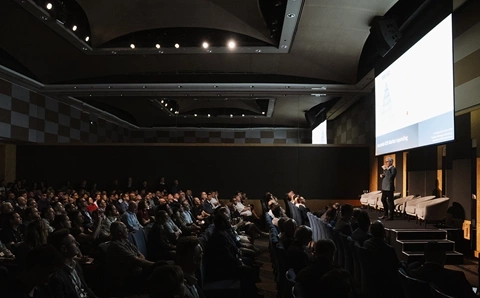Running a charity organisation is no different from operating a business. Andrew Young, CEO at youth cancer charity CanTeen, is still accountable for every dollar he spends on running the organisation.
Young says the average person on the street understands the importance of IT, but when they hand their donations over they do not expect the charity to spend it on sophisticated PCs – people want the money to go to initiatives for the people suffering whatever illness they have.
“[Being accountable] is understandable. However, public perception that we as a charity organisation can work on Commodore 64 PCs works against us,” says Young.
“A business case does exist for us to ensure we maintain our IT systems. But we have to balance our needs with what the community expects – for us not to spend a lot of money [but still] meet the needs of those that are sick.”
Losing contact
Young says CanTeen’s IT system runs all Microsoft Word applications for fairly generic work. The charity’s real business is being able to provide support programs for 12 to 24 year olds with cancer and this includes family camps and a range of other programs.
IT is used to maintain records of members as well as maintain a relationship with the public. However, the organisation’s website is instrumental in bringing in money and Young says it can make thousands of dollars from public donations via the site. This is where IT comes in to help the organisation as a business tool, he says.
The relatively small organisation, which includes 60 staff across all regions and territories, recently faced its worst crisis since Young joined three years ago. It happened during CanTeen’s 2006 National Bandanna Day: the organisation’s email system was down the whole time during this event.
“When I first started there were a lot of small issues that we could deal with. However, the final straw came during the two weeks of National Bandanna Day,” Young says. “It is one of our biggest charity events and can earn the charity around $2.7 million. Being able to access email during this time was very important for us.”
Ian Woollett, CEO of local IT service organisation Tripoint, says CanTeen, like any other corporate business, knows that email is a mission-critical application and if the system goes down then the company is incapacitated. “CanTeen’s reputation as a charity will be affected if they can’t take donations from its website. If their server goes down then they can’t make any money,” he says.
Broken down
Having witnessed these disasters Tripoint decided to help and in January 2007 offered free IT services to CanTeen. The relationship between the charity and the service company actually goes back to 2005. Back then the organisations worked together to purchase, build and deploy desktops and laptops for the charity’s ageing equipment. This project also involved Tripoint developing a standard operating environment for CanTeen.
“Back then things were a complete mess at the charity organisation. We had to rip out the old system and completely rebuild them a new one,” says Woollett. “There’s no adage to outsourcing, because a broken down system won’t be fixed if it’s completely broken.”
Woollett says at CanTeen there was no understanding of the frailty of the IT system. Most organisations would look at how well their IT systems were working, how they may have worn out – something that is ongoing and done on a yearly basis. CanTeen did not have the capability to do that.
If a website cannot be generated and email, which is a critical part of the business, is not working, then
CanTeen gets an IT makeover
By
Lilia Guan
on Mar 21, 2007 4:47PM
Page 1 of 2 | Single page
Got a news tip for our journalists? Share it with us anonymously here.
Tags:
hardware
Partner Content

Guiding customers on the uneven path to AI adoption

Beyond the box: How Crayon Is Redefining Distribution for the Next Era
.png&h=142&w=230&c=1&s=1)
How mandatory climate reporting is raising the bar for corporate leadership
_(21).jpg&h=142&w=230&c=1&s=1)
Empowering Sustainability: Schneider Electric's Dedication to Powering Customer Success
.jpg&h=142&w=230&c=1&s=1)
New Microsoft CSP rules? Here’s how MSPs can stay ahead with Ingram Micro
Sponsored Whitepapers

Cut through the SASE confusion

Stay protected as cyber threats evolve

Defend Your Network from the Next Generation of AI Threats
.jpg&w=100&c=1&s=0)
The race to AI advantage is on. Don’t let slow consulting projects hold you back.
_(8).jpg&w=100&c=1&s=0)
The changing face of Australian distribution












